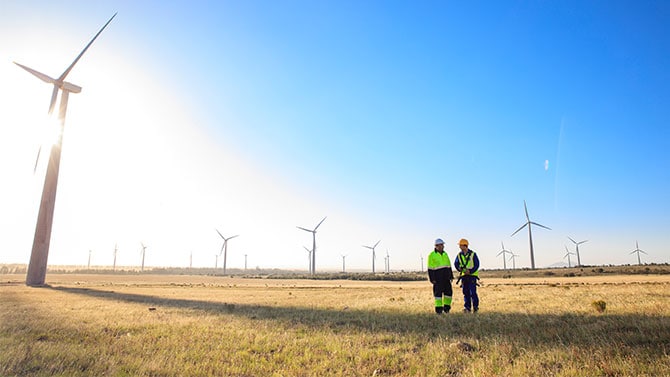{{item.title}}
{{item.text}}

{{item.text}}
Belgium's commitment to an energy transition is underscored by a substantial shift from fossil-based to renewable sources of electricity. Technologies like wind and solar energy have not only witnessed remarkable cost reductions but also received substantial investments due to government policies, including subsidies. This strategic focus extends beyond electricity generation to encompass sustainable mobility, heat transition in the constructed environment, and emissions reduction in the industrial sector.
Belgium stands as a key player in the European offshore wind sector, contributing to the global leadership in this domain. Unlike some countries, projects in the Netherlands and Germany are progressing without subsidies, marking a significant milestone in the sector's maturity. As offshore wind technology becomes increasingly competitive, Belgium anticipates strong growth in both offshore and onshore wind projects, essential components of its comprehensive energy transition strategy.
Renewable energy projects face complexities influenced by varying subsidies, tenders, tax schemes, and regional planning regulations across countries. Our role is to enhance transparency surrounding project pipelines and regulations, providing stakeholders with the insights needed to navigate and succeed in this intricate environment.
In Belgium's envisioned subsidy-free future, Corporate Power Purchase Agreements (PPAs) emerge as a solution for managing electricity market risks. Companies seeking to reduce greenhouse gas emissions can directly purchase electricity from producers for a defined period, ensuring security for both parties. The increasing interest in offshore wind projects aligns with the broader goal of advancing renewable energy adoption in the corporate sector.
As Belgium addresses the challenge of fluctuating energy supply from sun and wind, innovative solutions gain prominence. Energy storage options such as thermal storage and 'power-to-gas' conversion, where electricity is transformed into hydrogen, offer potential avenues to balance supply and demand across heat, fuels, and electricity.
Grid managers are experiencing heightened interactivity and contact with consumers as the future energy consumer becomes more involved in determining how and where their energy is generated. Constructing smart grids is crucial for grid managers, offering an essential framework for navigating the evolving energy landscape. Network operators, within legal frameworks, play a pivotal role in facilitating Belgium's ongoing energy transition.
What strategic modifications are essential for my business operations during the transition to renewable energy?
What ongoing developments characterize the landscape of renewable energy?
What choices exist in terms of subsidy options and financial arrangements that can be leveraged?
How does climate policy and regulatory frameworks impact the overall transition to renewable energy?
PwC will be happy to advise you on issues relating to renewable energy. From evaluating innovative technologies and developing new business models to creating the financial structure for renewable energy projects.
We are eager to engage in discussions with you about these challenges and more, offering expertise in Assurance, Advisory, Tax & HRS to assist businesses, governments, and investors in navigating the complexities of renewable energy. Drawing on our experience across diverse sectors and fostering cross-sector partnerships, we stand ready to support your initiatives in the realm of renewable energy. Interested in discovering how we can contribute to realizing your ambitions in renewable energy? Connect with us to explore the possibilities.
{{item.text}}

{{item.text}}




